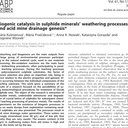The median informs the message: accuracy of individualized scenarios for survival time based on oncologists' estimates.
キーワード
概要
OBJECTIVE
To determine the accuracy and usefulness of oncologists' estimates of survival time in individual patients with advanced cancer.
METHODS
Twenty-one oncologists estimated the "median survival of a group of identical patients" for each of 114 patients with advanced cancer. Accuracy was defined by the proportions of patients with an observed survival time bounded by prespecified multiples of their estimated survival time. We expected 50% to live longer (or shorter) than their oncologist's estimate (calibration), 50% to live from half to double their estimate (typical scenario), 5% to 10% to live ≤ one quarter of their estimate (worst-case scenario), and 5% to 10% to live three or more times their estimate (best-case scenario). Estimates within 0.67 to 1.33 times observed survival were deemed precise. Discriminative value was assessed with Harrell's C-statistic and prognostic significance with proportional hazards regression.
RESULTS
Median survival time was 11 months. Oncologists' estimates were relatively well-calibrated (61% shorter than observed), imprecise (29% from 0.67 to 1.33 times observed), and moderately discriminative (Harrell C-statistic 0.63; P = .001). The proportion of patients with an observed survival half to double their oncologist's estimate was 63%, ≤ one quarter of their oncologist's estimate was 6%, and three or more times their oncologist's estimate was 14%. Independent predictors of observed survival were oncologist's estimate (hazard ratio [HR] = 0.92; P = .004), dry mouth (HR = 5.1; P < .0001), alkaline phosphatase more than 101 U/L (HR = 2.8; P = .0002), Karnofsky performance status ≤ 70 (HR = 2.3; P = .007), prostate primary (HR = 0.23; P = .002), and steroid use (HR = 2.4; P = .02).
CONCLUSIONS
Oncologists' estimates of survival time were relatively well-calibrated, moderately discriminative, independently associated with observed survival, and a reasonable basis for estimating worst-case, typical, and best-case scenarios for survival.



